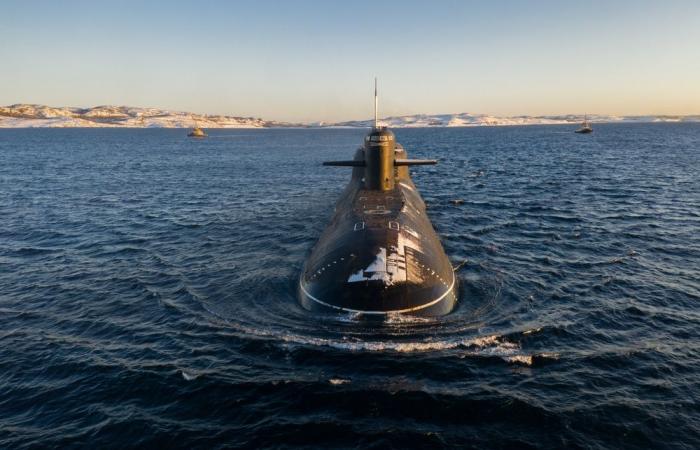As global energy challenges continue to grow, Russia is proposing a bold solution: giant nuclear submarines dedicated to transporting liquefied natural gas (LNG). A project that combines technological innovation and geopolitical ambitions. Moscow has revealed plans to revolutionize global energy logistics. By developing 180,000-ton nuclear submarines specially designed to transport liquefied gas, Russia intends to strengthen its leading position in the gas industry while fully exploiting the potential of the polar route.
A highly technological project
Russia plans to build nuclear submarines capable of navigating under Arctic ice, a world first. These behemoths of the seas, powered by nuclear reactors, could circumvent the climatic and geopolitical constraints that weigh on traditional LNG transport.
| Technical Characteristics | Details |
|---|---|
| Tonnage | 180,000 tonnes |
| Propulsion | Nuclear |
| Carrying capacity | Equivalent to 2 LNG tankers |
| Underwater speed | 30 knots |
| Main navigation area | Arctic and polar route |
Multiple strategic benefits
Nuclear submarines offer several strategic advantages for Russia:
- Secure access to Asian markets : By bypassing congested or dangerous shipping routes, these submersibles would guarantee reliable delivery to countries like China, Japan or India.
- Reduction of logistics costs : With their ability to navigate under ice, they eliminate the need for expensive icebreakers usually required for Arctic convoys.
- Strengthening energy independence : This solution reduces dependence on vulnerable land or maritime infrastructure, such as pipelines or LNG tankers exposed to geopolitical tensions.
Sophisticated and innovative operation
On-board nuclear technology guarantees almost unlimited energy autonomy, essential for long distances traveled under the ice. In addition, the submarines integrate advanced cryogenic systems capable of maintaining the gas at a stable temperature of -162°C, essential for maintaining the liquid state of LNG.
Despite its promises, this project raises concerns:
- Colossal costs : The construction and maintenance of these submarines represents a massive investment, with significant economic implications.
- Environmental impact : While nuclear energy guarantees exceptional efficiency, it is not without risks for the fragile ecosystem of the Arctic.
- International reactions : Some countries bordering the Arctic could interpret this initiative as a disguised militarization of the region.
A reaction? Leave a comment
Did you like this article? Subscribe to our free newsletter for engaging articles, exclusive content and the latest news.






